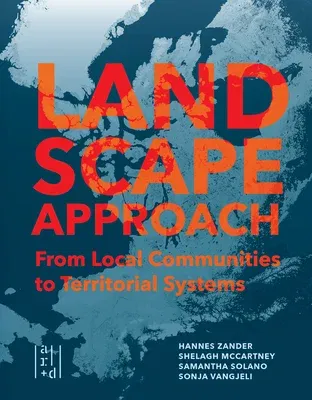A Landscape Approach: From Local Communities to Territorial SystemsPaperback, 18 October 2022

Qty
1
Turbo
Ships in 2 - 3 days
Only 2 left
Free Delivery
Cash on Delivery
15 Days
Free Returns
Secure Checkout

Print Length
304 pages
Language
English
Publisher
Applied Research & Design
Date Published
18 Oct 2022
ISBN-10
1954081235
ISBN-13
9781954081239
Description
Product Details
Book Format:
Paperback
Country of Origin:
US
Date Published:
18 October 2022
Dimensions:
23.88 x
18.29 x
2.03 cm
ISBN-10:
1954081235
ISBN-13:
9781954081239
Language:
English
Location:
Novato, CA
Pages:
304
Publisher:
Weight:
1102.23 gm